Are all your financial eggs in one basket? Here's why that's not such a bad idea.
I’m going to attack a sacred cow; something your parents or teachers probably taught you, but something that is wrong. At the very least, your perception of what it means is partly wrong. The idea has merit; the application is different than you think.
Simple phrases teach powerful lessons. Genius lies in packaging these lessons into memorable sound bites. Almost everyone can share some Ben Franklin or William Shakespeare quotes. Most of us carry dozens of familiar quotes – from a variety of sources – in our heads.
One such quote frequently repeated is, “Don’t put all your eggs in one basket.” It’s become such a keystone investment concept that we created an impressive six-syllable word for it: diversification. Million dollar portfolios are constructed around the concept. Buying and holding a variety of investments is a good idea. In fact, it’s a Nobel prizewinning idea. Professor Harry Markowitz received the 1990 Nobel prize in economics for his seed hypothesis and work creating Modern Portfolio Theory, the genius of which is the concept of deliberate portfolio diversification.
By all means, let this old sacred cow work for you. Yes, you should have diversified investments. Yes, you should keep bank deposits below the FDIC thresholds. Yes, you should combine different stock strategies and market sectors. These are foundational elements of good investing … you shouldn’t buy your entire IRA into GameStop (GME) stock!
What diversification doesn’t mean is that it’s better to have several stockbrokers or advisors. Why would two or three advisors be better than one? One will always outperform the others. Isn’t this a recipe for dissatisfaction? Dividing your investments among advisors means no one has a “big picture” perspective of your complete situation.
Does it make sense to keep accounts in several different banks? Only if you measure success by the abundance of paperwork or confusion. Truly, it makes more sense to have everything financial in one place.
Practical benefits of consolidation are plenty. It’s so much easier to:
- Organize your financial and investment details,
- Implement a coordinated investment strategy,
- Save fees and costs through higher volume choices,
- Reduce paperwork and tax preparation,
- Streamline your eventual estate administration process.
Today, we can achieve adequate or even superior diversification within one insured account. We can hold $1,000,000 of bank certificates – all insured by FDIC coverage – in a single account (and wrestle less paperwork at tax time). Still adhering to the concept of separating our eggs, we can hire a dozen different portfolio managers within a single account. An account can hold insured bank certificates, managed portfolios, index funds, and bonds or bond funds - and still be insured against institutional default up to $100 million dollars! That’s one hundred million dollars per account.
You don’t have to take my word. Insurance limits are documented if you look. Both the Securities Insurance Protection (SIPC) and Federal Deposit Insurance (FDIC) Corps publish their rules and regulations. Brokerage firms offer details on their excess insurance coverages as a matter of routine. You can reliably confirm any of this with a few minutes of Google research.
This is mainstream personal finance – stuff your parents and teachers would approve. Only, now, you can hold all your different eggs in a single, very safe, basket. Wealthy families often invest almost everything through one investment firm or bank trust company. Through thoughtful planning and by working with an informed advisor, they avoid the risks of brokerage or bank failure. This isn’t dangerous, it’s routine personal finance.
Ask any experienced CPA or lawyer about the burden of multiple records and then you’ll begin to understand both the challenges and solutions. Trained professionals see this, and so should you.
I’ve seen it happen. Adult children come in with a stack of statements and a list of accounts. “We’re trying to sort through mom’s banking, and it’s a nightmare. Bank lobbies aren’t open, we’ve got a mess of renewal notices, and we’re not sure how each account is registered. She probably knew, but she doesn’t anymore.”
Mom’s old sacred cow was a vital lesson for a different time. Importantly, mom was doing exactly what she had been taught! But things have changed today and there are considerably better, safer, and more convenient choices.
Reshuffling “all your eggs” is a great way to improve your situation. Find a quality advisor and let them help organize your financial life.
Originally published in the Kansas City Star, March 23, 2021.
https://www.kansascity.com/news/business/personal-finance/article250037019.html

